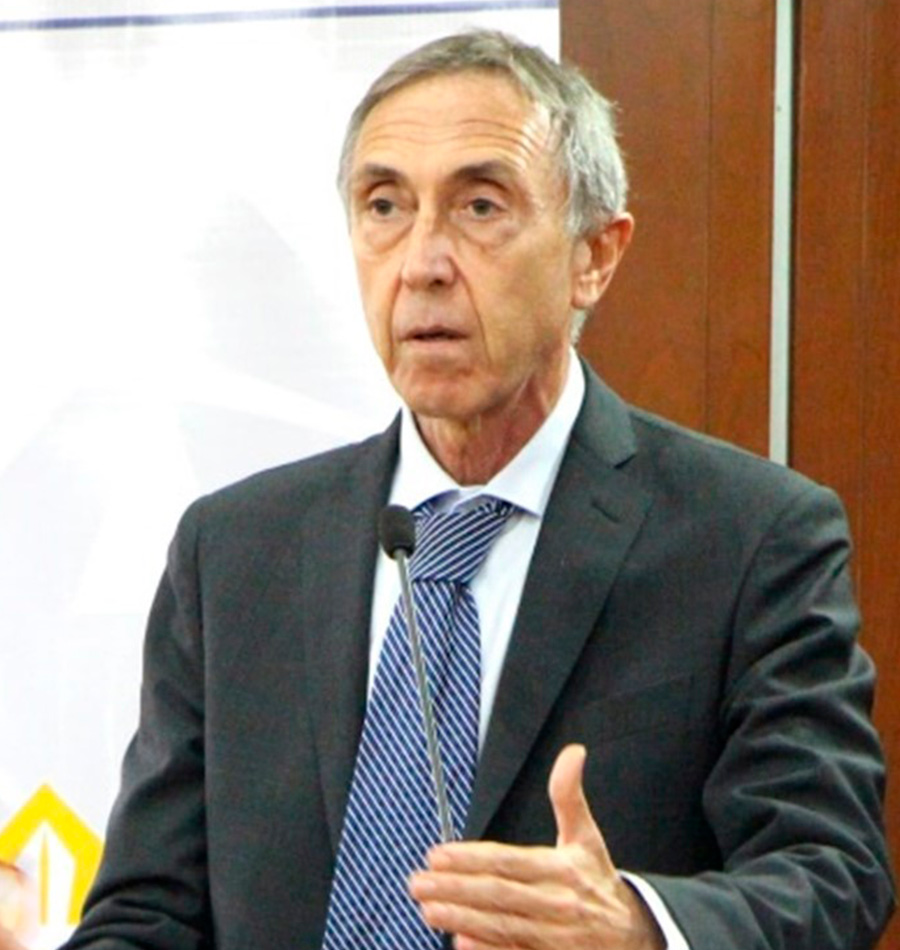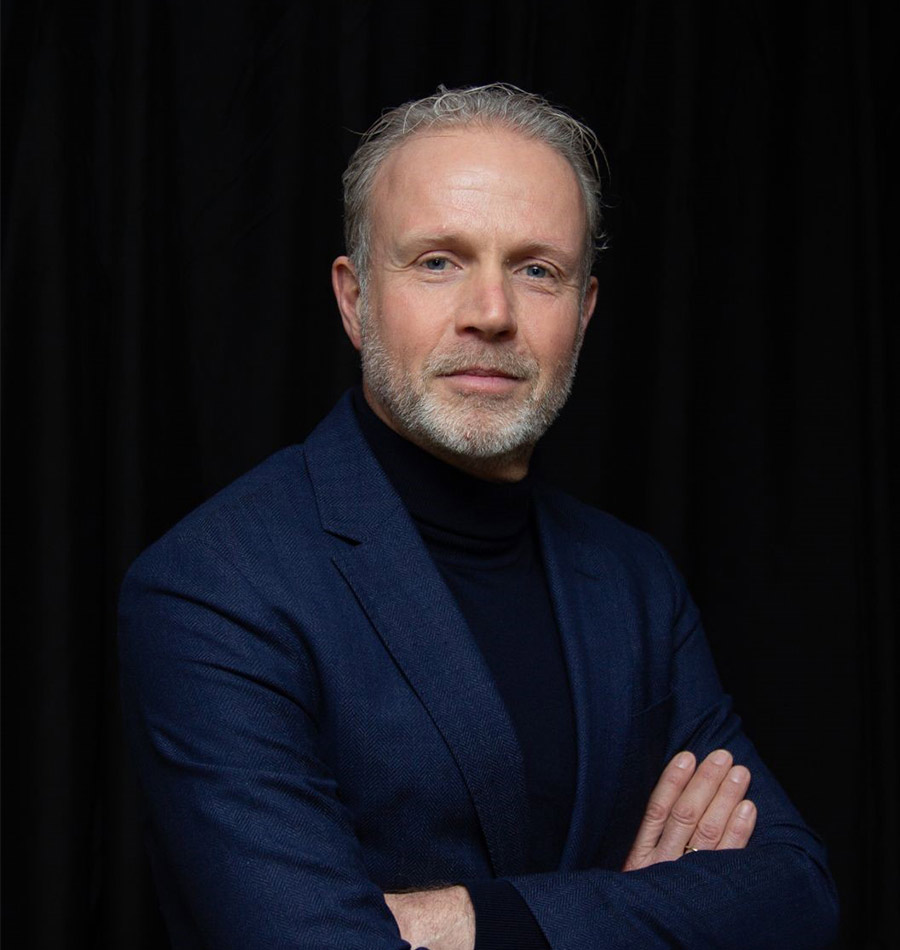Interview
Paolo Di Sciuva
International Director of the EURESP project in Ecuador
The EURESP programme, funded by the European External Action Service, started in September 2022 and will run for a total of 18 months. The programme was set up in response to Ecuador’s request for assistance. The project focuses on mitigating the impact of the prison crisis on national security by helping the authorities curb criminal factional violence inside and outside prisons. The programme also aims to re-establish control in prisons while respecting the human rights of inmates.
What are the underlying factors that have led Ecuador to seek emergency assistance from the EU on security and prison?
PDS: Undoubtedly, some of the determining factors were the events of October and November 2021, as well as February 2022, when the prison massacres took place. These events were completely unexpected for Ecuador, a country that until 2019 had never had a conflictive prison system. Everything seemed to come out of nowhere, and the Ecuadorian State woke up with a gigantic and ever-growing problem. It was such an overwhelming experience that it should serve as a warning to all countries in Latin America and the world.
It was President Guillermo Lasso himself who, aware of the Italian experience in the context of the European Union Programme “EL PAcCTO” (Europe and Latin America Programme of Assistance against Transnational Organised Crime), asked the Delegation of the European Union in Ecuador for help.
The collaboration of the European Union in the development of a prison emergency plan began even before the formalisation of the EURESP project, which took place on 1 September 2023, as a spin-off of PAcCTO. In February 2022, the foundations were laid for this collaboration programme between the Ecuadorian Government and the European Union Delegation, whose main actors are SNAI (the Ecuadorian National Service for the Care of Adults Deprived of their Liberty and Adolescent Offenders) and EURESP, which works together with international experts and the Ecuadorian authorities, as an aptly named task force.
Given the complex challenges posed by criminal groups inside and outside your prison system, how is the EUREP project addressing these issues?
PDS: The prison system is a priority of the national public security system in all democracies, just as the prison intelligence subsystem is fundamental to the national system, especially when leaders of criminal organisations are incarcerated.
It is essential to keep a constant eye on the prison system, even when at first glance everything appears to be in order, because what happens inside prisons often has a significant impact on what happens outside.
Understanding what happens in prisons is crucial to preventing future problems in society at large.
Leaders of criminal organisations cannot maintain their influence outside prison if they are not in control inside. This criminal rule is reinforced when the leaders of different criminal cartels compete with each other while in detention. There is no other solution than to break, and defeat, any link between the detained bosses and their agents on the outside. We propose a penitentiary intelligence system based on the classification and separation of dangerous detainees from the others, with different surveillance regimes and circuits according to the specific dangerousness of the prisoners and the security requirements of the State.
This solution is also the only viable solution for an effective rehabilitation system for detainees who truly want it.
It is no coincidence that when states decide to isolate and separate criminal leaders from other detainees, the cartels respond with terrorist strategies, threats and attacks against the civilian population, or attempt to corrupt or threaten judges in order to return to prisons where they can maintain their control.
This is a top priority issue, especially in Latin America, where mafia cartels are becoming more aggressive and violent every day, corrupting the State’s rule-of-law. Their aim is to destabilise democracies in order to become dominant political and social actors, with the intention of becoming States themselves.
Could you outline some of the main strategies and actions undertaken by EURESP, highlighting the specific results achieved so far?
PDS: In 2021, the Ecuadorian prison system in 2021 was in fact in its zero year: there was one unarmed officer for every 20 armed detainees; the infrastructure was totally inadequate and, after previous riots, the surveillance systems had been destroyed. In addition, there were no census data, databases, or biometric records on the prison population. On the other hand, there was a very high rate of overcrowding. The situation was even more critical in terms of prison intelligence and crisis management. The EURESP project envisages two complementary approaches. The first is the institutional strengthening for an efficient management of crises and of all the information necessary for the real development of a penitentiary intelligence system. The second is the implementation of a training system for prison officers.
The ultimate goal is to structure the National Integrated Care Service in a permanent and self-sustaining way in terms of training, intelligence, and crisis management.
We have made significant progress so far. We have trained 1400 new officers (almost half of the current contingent), special units of the Crisis Intervention Group (77), and the group specialized in transfers and surveillance of dangerous detainees (88). In addition, we have trained trainers of trainers (36), developed training in intelligence, data analysis and everything else that makes a penitentiary system work, with a particular focus on developing a sense of belonging. We are also providing the SNAI with technical tools to manage crises and develop high-level intelligence, and in the next semester we will further explore the Training School project, which will provide training resources at an international level. Importantly, the project takes a holistic approach, recognising that prison security is fundamental to the security of a gang-affected state.
History shows that criminal organisations such as the Nueva Camorra Organizada and the Primeiro Comando da Capital originated in prisons. That is why, together with the Ministry of the Interior, we have held a series of workshops throughout the national territory to develop the public security document of the Ecuadorian State for 2023-2030, with the participation of European and Latin American experts on issues such as organised crime, terrorism, human trafficking, arms trafficking, illegal mining and money laundering. As part of this process, we have provided prison intelligence and prison crisis management protocols, which are an integral part of this crucial document.
JT: International cooperation has played a key role in the success of the EURESP project.
Can you share how the cooperation of European and Latin American experts has helped to address the specific challenges of the Ecuadorian prison system? And how do you see the results of this partnership being sustained in the future?
PDS: The task force method has been one of the keys to success, with its basic idea of always seeking the right solution for the Ecuadorian prison system, making use of the experience and knowledge of European and/or Latin American experts, according to the needs of the moment.
The joint collaboration between the Ecuadorian government and international experts proved to be the right choice because it allowed us to act with the necessary flexibility in such a rapidly changing and degenerating environment.
Our framework has not been to impose or transfer standards or ideas, but rather to share experience and training after analysing the specific needs of Ecuador. Our objective was, and still is, to build a self-sustaining and lasting foundation over time.
Unfortunately, as we, look to the future, we must consider the context of the current political instability, which poses an additional challenge to maintaining the momentum achieved so far.
In this sense, the development of a Training School in the next semester will be the fulfilment of this strategy to ensure sustainability.
It would also be necessary to strengthen the regulatory framework and we are also working on this with the Ecuadorian authorities, both at the political and jurisdictional levels.
Finally, it is important to remember that success in the fight against organised crime, both inside and outside prisons, depends to a large extent on a cultural battle and on the awareness and willingness of the population to put an end to the dominance of these groups.
In Italy, for example, the murders of judges Giovanni Falcone and Paolo Borsellino in 1992 led to a public backlash that forced politicians to take necessary measures. The cultural revolution was fundamental to achieving lasting change. We hope to convene a similar consensus conference in the future.
Paolo Di Sciuva
International Director of the EURESP project in Ecuador
Paolo di Sciuva, an experienced Italian Judge and International Director of the EURESP Programme, is a noted investigator in organised crime and drug trafficking, especially in Southern Italy. He has expertise in Prison Law and Criminal Enforcement, with a particular focus on the links between prisons and organised crime on the outside. He also served as an anti-mafia expert in Sicily and previously taught at the State Police School in Caserta.


